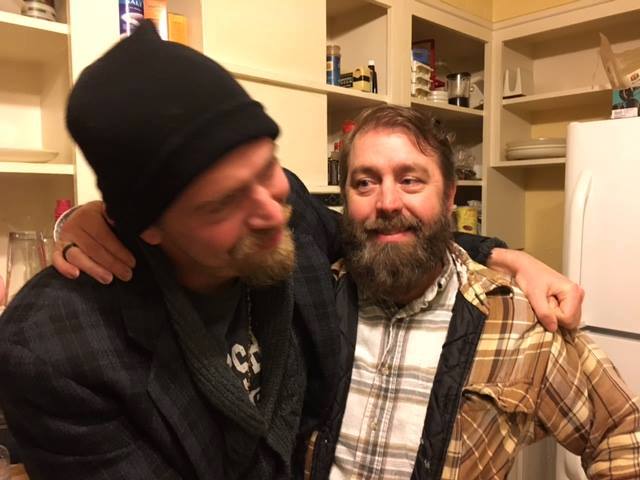
By Nome Emeka Patrick:
MONOLOGUE IN A ROOM WITH THE PORTRAITS OF MY DEAD BROTHER
You were my brother until your eyes wore a dragon’s breath until your hands grew into an orchard of blood until your mouth unwound into a coffin. May the blood that hums in our veins like a river knifing past a dark forest bear me witness. I love you brother with all the birds psalming in my bones. I love you o brother. In this sanctuary that’s my mouth, brother there’s a prayer burning wild –a lamp in the wrinkled hands of a monk searching God in a dark room. You were my brother until the ten o’ clock news says a young man walks into a market with explosives strapped to his body like a life jacket. On the TV your face appears like a surprise & so it is. A scar glitters like a promise on your neck & so it is. How you got the scar: we were god’s descendants in a garden one afternoon when you said let’s play a game –a game of stones. Everything always started with you even the morning fajr. You hurled your stone but I ducked. Mine stabbed your neck into spittle of warm blood. We both knelt like two unfurling hibiscuses. We both cried like a night wind behind a chariot until the ambulance came. & today the scar glitters on every neighbour’s screen. That’s your lips o brother where prayers & ablutions grew wings & flew into the heavenly nest of a whistling God beyond. O brother the dancing firefly in a dark museum. O brother the lonely lamb where the forest is wildest. Until your eyes wore the skin of night & your hands grew into a garden of cold fallen leaves, you were the vision I never had. You were all the places I always dreamt of. You were the only prayer I learnt to keep in my heart before opening it into Allah’s eyes. O you were my only dear brother. How do I pray for your soul when every song that leads me to you is a dirge stuck on a raven’s beak?
Reprinted with permission from the author. This poem first appeared in the Winter 2019 issue of Flapperhouse.
Nome Emeka Patrick is a blxck bxy and student in the University of Benin, Nigeria, where he studies English language and literature. A recipient of The 40th edition of Festus Iyayi award for excellence (Poetry) in 2018. His works have been published or forthcoming in Gaze journal, Beloit poetry journal, FLAPPER HOUSE, Crannóg magazine, Puerto Del Sol, Mud Season Review, The Oakland Review, Notre Dame Review, Gargouille, Barnhouse journal and elsewhere. His manuscript, We Need New Moses. Or New Luther King, was a finalist for the 2018 Sillerman First Book Prize for African poets. Say Hi on twitter @paht_rihk
Guest Editor’s Note: In this poem, a river knifes past a dark forest, and a scar glitters; memory of shared experience becomes love, and a brother questions his own mourning in the wake of a terrible devotion in “a prayer burning wild.” The speaker addresses his brother and cries out for meaning in a senseless world that broadcasts the terror and disregards the humanity. The speaker talks of their kinship in the past, signaling its destruction at the moment the bomb exploded, leaving the speaker with an unresolved grief.
Original similes are sometimes hard to come by, but this poem surprises with each comparison that contains images igniting all of the senses and lines delving deeper into the emotions associated with a brother’s death. Remembering how they dealt with tragedy in their youth, the speaker compares them to “two unfurling hibiscuses,” kneeling and crying. The poem is a visual and musical lament that uses personal memory and imagery to convey intimate sorrow and grief, universal human feelings that rely on recollection to commemorate loved ones and keep close those times that define life in the living and not in its end.
Want to read more by and about Nome Emeka Patrick?
Gaze Journal
FLAPPERHOUSE
Vagabond City

Contributing Editor Anne Graue is the author of Fig Tree in Winter (Dancing Girl Press), and has published poems in literary journals and anthologies, including The Book of Donuts (Terrapin Books), Blood and Roses: A Devotional for Aphrodite and Venus (Bibliotheca Alexandrina), Gluttony (Pure Slush Books), The Plath Poetry Project, One Sentence Poems, Random Sample Review, Into the Void Magazine, Allegro Poetry Magazine, and Rivet Journal.
A NOTE FROM THE MANAGING EDITOR:
After nearly ten years as Contributing Editor of this series, it is an honor and a unique opportunity to share this space with two new Contributing Editors, including the one featured here today. I am now thrilled to usher in an era of new voices in poetry as the Managing Editor of this series.
Viva la poesia!
Sivan, Managing Editor
Saturday Poetry Series, AIOTB








